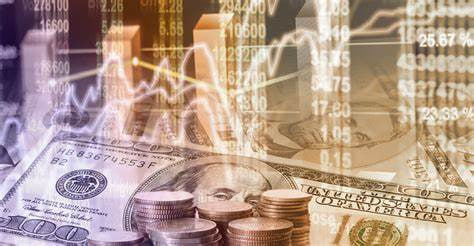Taxing the Super-Rich: A Debate Heats Up as Donors Urge VP Harris to Reconsider
Meta Description: Donors are calling for a rethink of tax policies on the super-rich, urging Vice President Kamala Harris to reconsider the current approach. This article delves into the complex debate surrounding taxing the wealthy, exploring arguments for and against, and the potential impact on the economy and social equity.
Imagine this: You're a philanthropist, passionate about tackling social issues and improving lives. You donate generously, believing your contributions will make a tangible difference. But then, you hear whispers, murmurs of discontent, about the very people you're trying to help – the super-rich – not paying their "fair share." This isn't just a hypothetical scenario, it's a real issue that's sparked a heated debate, with donors like yourself increasingly vocal about the need for a change in how the ultra-wealthy are taxed.
This isn't just about the numbers, it's about principles. It's about a sense of fairness, a belief that everyone should contribute proportionally to the common good. It's about ensuring that the burden of funding essential services doesn't fall disproportionately on the shoulders of those least able to bear it. This article dives deep into the complexities surrounding the taxation of the super-rich, exploring the arguments, the potential consequences, and ultimately, the question of whether it's time for a new approach.
The Taxing Question: A Matter of Fairness and Economic Impact
The call for a re-evaluation of tax policies on the super-rich is gaining momentum, with donors urging Vice President Harris to reconsider the current approach. This isn't just a matter of dollars and cents; it's a question of societal values and economic impact. Let's break down the key arguments:
The Case for Higher Taxes on the Super-Rich:
- Fairness: Proponents argue that the current system is inherently unfair. They point to the widening gap between the richest Americans and the rest, with the top 1% accumulating a disproportionate share of national wealth while others struggle to make ends meet. They believe that those who benefit the most from society should contribute proportionally more to its upkeep.
- Social Impact: Supporters of higher taxes often cite their potential to address societal issues. They argue that increased tax revenue could be used to fund vital programs like education, healthcare, and infrastructure, improving the lives of those most in need.
- Economic Impact: Some economists believe that higher taxes on the super-rich could actually stimulate economic growth. They argue that this would lead to increased government spending on essential services, creating jobs and boosting demand.
The Case Against Higher Taxes on the Super-Rich:
- Economic Disincentive: Opponents of higher taxes argue that they would disincentivize investment and economic growth. They claim that wealthy individuals would be less likely to invest in businesses, create jobs, and contribute to the economy if they face higher tax burdens.
- Job Creation: Critics argue that higher taxes would lead to job losses, as businesses would be forced to cut costs to compensate for the increased tax liability.
- Capital Flight: Some fear that higher taxes would push wealthy individuals and corporations to move their assets and operations to countries with lower tax rates, leading to a brain drain and loss of economic activity.
A Look at the Data:
While the arguments surrounding taxation of the super-rich can be heated, it's crucial to consider the data:
| Metric | Evidence | Implications |
|---|---|---|
| Wealth Inequality | The richest 1% of Americans own more wealth than the bottom 90% combined. | This stark disparity raises concerns about fairness and social mobility. |
| Tax Rates | The effective tax rate for the wealthiest Americans has declined significantly over the past few decades. | This suggests that the current system may not be sufficiently progressive. |
| Economic Impact of Tax Policy | Studies have shown mixed results regarding the impact of tax policy on economic growth. | It's difficult to definitively prove a causal link between tax policy and economic performance. |
The Debate Continues: Where Do We Go From Here?
The debate surrounding the taxation of the super-rich is unlikely to fade away anytime soon. As calls for change grow louder, it's crucial to engage in thoughtful and informed discussions, considering the arguments on both sides and analyzing the available data. Ultimately, the goal should be to create a tax system that is fair, efficient, and promotes both social and economic well-being.
The Future of Tax Policy: A Call for Innovation and Collaboration
It's time to move beyond the traditional "left vs. right" paradigm and explore innovative solutions that address the challenges of a changing economy and a widening wealth gap. This means:
- Engaging in Open Dialogue: It's essential to break down silos and foster open communication between diverse stakeholders – policymakers, economists, business leaders, and citizens.
- Exploring New Models: We need to consider new tax structures that are both progressive and economically efficient, such as wealth taxes, carbon taxes, and progressive consumption taxes.
- Focusing on Investment: A significant portion of tax revenue should be directed towards investments in education, healthcare, and infrastructure, creating long-term economic growth and social mobility.
The Path Forward: A Call to Action
The debate over taxing the super-rich is a critical one, impacting the future of our society and economy. It's not about punishing the wealthy; it's about creating a fairer and more equitable society where everyone has the opportunity to thrive. As donors and citizens, we have a responsibility to engage in this dialogue, demand accountability from our leaders, and advocate for policies that promote a more just and prosperous future.
FAQs
Q: Why is there so much focus on taxing the super-rich?
A: The growing disparity between the wealthiest Americans and the rest of the population has raised concerns about fairness and social mobility. Taxing the super-rich is seen as a way to address this inequality and fund essential services.
Q: What are the potential economic consequences of higher taxes on the super-rich?
A: The potential economic consequences of higher taxes on the super-rich are debated. Some argue that they would discourage investment and job creation, while others believe they could stimulate economic growth by increasing government spending on essential services.
Q: What are some alternative tax structures that could be considered?
**A: ** Some alternative tax structures that could be considered include wealth taxes, carbon taxes, and progressive consumption taxes.
Q: How can we ensure that tax revenue is used effectively?
A: It's essential to have transparent and accountable systems in place to ensure that tax revenue is used efficiently and effectively to fund essential services and investments that benefit society.
Q: What role can individuals play in advocating for tax reform?
A: Individuals can play a significant role in advocating for tax reform by contacting their elected officials, supporting organizations that promote tax fairness, and engaging in public discourse.
Conclusion:
The debate over taxing the super-rich is a complex and multifaceted one, with valid arguments on both sides. However, it's clear that the current system is not sustainable, and we must find a way to create a fairer and more equitable society. This requires open dialogue, innovative solutions, and a commitment to ensuring that everyone has the opportunity to thrive.



